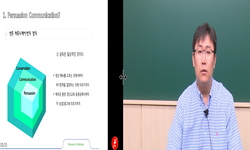본 연구는 중고등학생을 대상으로 방과 후 집에서 이루어지는 사이버 가정학습에 대한 태도와 만족도에 관한 영향요인을 분석하는 데 주된 목적이 있다. 이를 위해 사이버 가정학습에 대한 ...
http://chineseinput.net/에서 pinyin(병음)방식으로 중국어를 변환할 수 있습니다.
변환된 중국어를 복사하여 사용하시면 됩니다.
- 中文 을 입력하시려면 zhongwen을 입력하시고 space를누르시면됩니다.
- 北京 을 입력하시려면 beijing을 입력하시고 space를 누르시면 됩니다.
https://www.riss.kr/link?id=A76280054
- 저자
- 발행기관
- 학술지명
- 권호사항
-
발행연도
2007
-
작성언어
Korean
-
주제어
사이버 가정학습 ; 기술수용모형 ; 태도 ; 학습만족도 ; 부분적 최소자승법 ; e-Homestudy ; Technology Acceptance Model ; Attitude ; Satisfaction ; Partial Least Square
-
KDC
310
-
등재정보
KCI등재
-
자료형태
학술저널
- 발행기관 URL
-
수록면
44-58(15쪽)
-
KCI 피인용횟수
26
- DOI식별코드
- 제공처
-
0
상세조회 -
0
다운로드
부가정보
국문 초록 (Abstract)
본 연구는 중고등학생을 대상으로 방과 후 집에서 이루어지는 사이버 가정학습에 대한 태도와 만족도에 관한 영향요인을 분석하는 데 주된 목적이 있다. 이를 위해 사이버 가정학습에 대한 태도와 만족도에 영향을 미치는 요인으로 유용성, 가시성, 주관적 규범 등을 도입하고, 유용성은 다시 콘텐츠 질, 상호작용, 촉진조건 등에 의해 영향을 받는 다는 연구가설을 설정하고, 고등학생을 대상으로 수집한 설문자료를 토대로하여 실증적으로 분석하였다. 검증결과 학습태도와 자기주도성이 학습만족에 영향을 미치며, 학습태도는 주관적 규범, 가시성, 유용성 등이 모두 영향을 미치며, 유용성은 다시 학습콘텐츠, 상호작용에 의해 영향을 받음을 알 수 있었다. 촉진조건은 별다른 영향을 미치지 않는 것으로 나타났다.
다국어 초록 (Multilingual Abstract)
E-homestudy refers to e-Learning after school. This concept has been introduced by Korean Government as a substitute for expensive private tutoring. The purpose of this research is to explore the perceptions and relationships among determinants affect...
E-homestudy refers to e-Learning after school. This concept has been introduced by Korean Government as a substitute for expensive private tutoring. The purpose of this research is to explore the perceptions and relationships among determinants affecting the attitude and satisfaction level in e-homestudy. Such factors as subjective norms, visibility, perceived usefulness, quality of contents, facilitating conditions, interactions are introduced into the model. The survey results show that the attitude and the self-directed learning level influence the satisfaction level in e-homestudy; the subjective norms, visibility, and perceived usefulness are the major determinant affecting the attitude; the quality of contents as well as interactions have positive impact on the perceived usefulness.
목차 (Table of Contents)
- 요약
- Abstract
- Ⅰ. 서론
- Ⅱ. 사이버 가정학습에 관한 선행 연구
- Ⅲ. 연구가설 및 모형 설정
- 요약
- Abstract
- Ⅰ. 서론
- Ⅱ. 사이버 가정학습에 관한 선행 연구
- Ⅲ. 연구가설 및 모형 설정
- Ⅳ. 실증분석 및 논의
- Ⅴ. 요약 및 결론
- 참고문헌
- 저자소개
참고문헌 (Reference)
1 엄명용, "학습목적의 PMP사용자에 대한 만족도 영향요인 분석" 한국컴퓨터교육학회 10 (10): 77-88, 2007
2 김희배, "학교현장에서의 e-러닝에 대한 수요자 요구 분석-교사와 학생의 인식 및 태도를 중심으로-" 한국교육정보미디어학회 11 (11): 221-249, 2005
3 김미량, "컴퓨터 특기적성 교육의 만족도 영향요인 탐색 : 상업계 고등학교 학습자를 중심으로" 한국컴퓨터교육학회 8 (8): 37-47, 2005
4 이준, "초중등 사이버가정학습에 대한 교사의 인식: D 교육청 영어과 사례연구" 한국멀티미디어언어교육학회 8 (8): 154-178, 2005
5 권성호, "초등학교 사이버가정학습의 만족도와 효과성 분석- 학생, 교사, 학부모를 중심으로 -" 한국교육정보미디어학회 12 (12): 105-130, 2006
6 이윤옥, "자기주도학습 개념 분석 및 측정도구 개선방향에 관한 제언" 한국아동교육학회 16 (16): 19-30, 2007
7 김성배, "웹 컨텐츠를 이용한 실습교육의 수용요인에 관한 실증적 연구 -공엽계 고동학교 전자교과를 중심으로 -" 한국컴퓨터교육학회 5 (5): 91-98, 2002
8 배영주, "아동의 자기주도적 학교학습의 가능성과 실현 조건의 탐색" 한국교육과정학회 24 (24): 299-319, 2006
9 송태옥, "상호작용적 사이버가정학습 체제의 개발 및 적용" 한국교육정보미디어학회 11 (11): 99-120, 2005
10 송상호, "사이버가정학습체제를 위한 수업 운영 모형 탐색 연구" 한국교육정보미디어학회 12 (12): 259-298, 2006
1 엄명용, "학습목적의 PMP사용자에 대한 만족도 영향요인 분석" 한국컴퓨터교육학회 10 (10): 77-88, 2007
2 김희배, "학교현장에서의 e-러닝에 대한 수요자 요구 분석-교사와 학생의 인식 및 태도를 중심으로-" 한국교육정보미디어학회 11 (11): 221-249, 2005
3 김미량, "컴퓨터 특기적성 교육의 만족도 영향요인 탐색 : 상업계 고등학교 학습자를 중심으로" 한국컴퓨터교육학회 8 (8): 37-47, 2005
4 이준, "초중등 사이버가정학습에 대한 교사의 인식: D 교육청 영어과 사례연구" 한국멀티미디어언어교육학회 8 (8): 154-178, 2005
5 권성호, "초등학교 사이버가정학습의 만족도와 효과성 분석- 학생, 교사, 학부모를 중심으로 -" 한국교육정보미디어학회 12 (12): 105-130, 2006
6 이윤옥, "자기주도학습 개념 분석 및 측정도구 개선방향에 관한 제언" 한국아동교육학회 16 (16): 19-30, 2007
7 김성배, "웹 컨텐츠를 이용한 실습교육의 수용요인에 관한 실증적 연구 -공엽계 고동학교 전자교과를 중심으로 -" 한국컴퓨터교육학회 5 (5): 91-98, 2002
8 배영주, "아동의 자기주도적 학교학습의 가능성과 실현 조건의 탐색" 한국교육과정학회 24 (24): 299-319, 2006
9 송태옥, "상호작용적 사이버가정학습 체제의 개발 및 적용" 한국교육정보미디어학회 11 (11): 99-120, 2005
10 송상호, "사이버가정학습체제를 위한 수업 운영 모형 탐색 연구" 한국교육정보미디어학회 12 (12): 259-298, 2006
11 정용란, "사이버가정학습의 이용실태 및 개선 방안에 관한 연구- 중학교 과학을 중심으로 -" 한국교육정보미디어학회 12 (12): 131-155, 2006
12 권성호, "사이버 가정학습체제구축방안" 한국교육학술정보원 2003
13 이승진, "사이버 가정학습체제 구축 방안 연구" 한국교육학술정보원 2003
14 권성호, "사이버 가정학습체제 구축 모형 개발" 한국교육정보미디어학회 9 (9): 117-145, 2003
15 교육인적자원부, "사이버 가정학습 활성화방안" 2006
16 "http://www.elearningmag.com"
17 C. L. Hsu, "Why do People Play on-line Games? An Extended TAM with Social Influences and Flow Experiences" Information and Management 2003
18 F. D. Davis, "User Acceptance of Computer Technology: A Comparison of Two Theoretical Models" 35 : 982-1003, 1989
19 C. M. Chiu, "Usability, Quality, Value and e-Learning Continuance Decisions" Computers & Education 2004
20 J. C. Roca, "Understanding e-learning continuance intention in the workplace: A self-determination theory perspective" Computers in Human Behavior 2007
21 I. Ajzen, "Understanding Attitudes and Predicting Social Behavior" Prentice-Hall 1980
22 R. Agarwal, "Time Flies When You're Having Fun : Cognitive Absorption and Beliefs about Information Technology Usage" 24 (24): 665-694, 2000
23 M. G. Moore, "Three types of interaction, In Distance education: New perspectives" Routledge 1993
24 R. Agarwal, "The role of innovation characteristics and perceived voluntariness in the acceptance of information technologies" 28 (28): 557-582, 1997
25 E. Karahanna, "The Psychological Orgins of Perceived Usefulness and Eace of Use" 35 : 237-250, 1999
26 C. Fornell, "Structural Equation Models With Unobservable variables and Measurement Errors" 18 (18): 39-50, 1981
27 R. G. Brockett, "Self-direction in adult learning: Perspectives on theory, research, and practice" Routledge 1991
28 P. C. Candy, "Self-direction for lifelong learning: A comprehensive guide to theory and practice" Jossey-Bass 1991
29 M. S. Knowles, "Self-directed learning: A guide for learners and teachers" Prentice Hall 1997
30 D. R. Garrison, "Self-directed Learning : toward a Comprehensive Model" 48 (48): 18-31, 1997
31 P. D. Long, "Satisfaction with Distance Education: Evaluation of a Service Template" 11 (11): 530-536, 2000
32 J. C. Nunnally, "Psychometric Theory" McGraw -Hill 1978
33 W. Cheung, "Prediction of Internet and World Wide Web usage at work: a test of an extended Triandis model" 30 (30): 83-100, 2000
34 M. Igbaria, "Personal Computing Acceptance Factors in Small Firms: A Structural Equation Model" 21 (21): 279-305, 1997
35 F. D. Davis, "Perceived Usefulness, Perceived Ease of Use, and User Acceptance of Information Technology" 13 (13): 319-340, 1989
36 R. Hiemstra, "Overcoming resistance to self-direction in adult learning: New directions for adult and continuing education" Jossey-Bass Inc. Publishers 1994
37 J. F. Hair, "Multivariate Data Analysis with Readings, 5th Edition" Macmillan 1998
38 S. Aldridge, "Measuring Customer Satisfaction in Higher Education" 6 (6): 197-204, 1998
39 J. B. Arbaugh, "Managing the on-line classroom. A Study of Technological and Behavioral Characteristics of Web Based MBA Courses" 13 : 203-223, 2002
40 C. Heeter, "Interactivity in the Context of Designed Experience" 1 (1): 2000
41 W. D. Mihem, "Interactivity and Computer -Based Instruction" 24 (24): 225-233, 1996
42 M. Lombard, "Interactive Advertising and Presence: A Framework" 1 (1): 120-128, 2001
43 A. Hay, "Interaction and Virtual Learning" 13 : 193-204, 2004
44 N. Harrison, "How to design self-directed and distance learning: A guide for creators of web-based training, computer-based training, and self-study materials" McGraw- Hill 1999
45 C. S. Ong, "Gender differences in perceptions and relationships among dominants of e-learning acceptance" 22 (22): 816-829, 2006
46 D. Gefen, "Gender Differences in the Perception and Use of E-Mail: An Extension to the Technology Acceptance Model" 21 (21): 389-400, 1997
47 J. S. Ash, "Factors Affecting the Diffusion of Online End User Literature Searching" 87 (87): 58-66, 1999
48 E. W. T. Ngai, "Empirical examination of the adoption of WebCT using TAM" 48 (48): 250-267, 2007
49 E. M. Rogers, "Diffusion of Innovations (4th ed)" Free Press 1995
50 G. Moore, "Development of an Instrument to Measure the Perceptions of Adopting an Information Technology Innovation" 2 (2): 192-222, 1991
51 L. F. Oddi, "Development and Validation of an Instrument to Identify Self-directed Continuing Learners" 36 (36): 97-107, 1986
52 E. W. Anderson, "Customer Satisfaction, Market Share, and Profitability: Findings From Sweden" 58 : 53-66, 1994
53 J. M. Howel, "Champion of Technological Innovation" 35 (35): 317-341, 1990
54 S. Chaiken, "Attitudes and attitude change" 38 : 575-630, 1987
55 M. Lombard, "At the Heart of It All: the Concept of Presence" 3 (3): 1997
56 M. Guolla, "Assessing the Teaching Quality to Student Satisfaction Relationship: Applied Customer Satisfaction Research in the Classroom" 7 (7): 87-07, 1999
57 H. M. Selim, "An empirical investigation of student acceptance of course websites" 40 (40): 343-360, 2003
58 G. A. Churchill Jr., "An Investigation into the Determinants of Customer Satisfaction" 19 : 491-504, 1982
59 권성호, "2005년도 사이버 가정학습 효과성 분석 연구" 한국교육학술정보원 2005
동일학술지(권/호) 다른 논문
-
- 한국콘텐츠학회
- 안혜원(Hye-Won Ahn)
- 2007
- KCI등재
-
공무원퇴출제에 따른 지방공무원인사제도의 문제점과 개선방안
- 한국콘텐츠학회
- 정재욱(Jae-Wook Jung)
- 2007
- KCI등재
-
- 한국콘텐츠학회
- 오상영(Sang-Young Oh)
- 2007
- KCI등재
-
E-Communication 시대에 우정사업 마케팅전략
- 한국콘텐츠학회
- 김준회(Jun-Whai Kim)
- 2007
- KCI등재
분석정보
인용정보 인용지수 설명보기
학술지 이력
| 연월일 | 이력구분 | 이력상세 | 등재구분 |
|---|---|---|---|
| 2027 | 평가예정 | 재인증평가 신청대상 (재인증) | |
| 2021-01-01 | 평가 | 등재학술지 유지 (재인증) |  |
| 2018-01-01 | 평가 | 등재학술지 유지 (등재유지) |  |
| 2015-01-01 | 평가 | 등재학술지 유지 (등재유지) |  |
| 2011-01-01 | 평가 | 등재학술지 유지 (등재유지) |  |
| 2008-01-01 | 평가 | 등재학술지 선정 (등재후보2차) |  |
| 2007-05-04 | 학회명변경 | 영문명 : The Korea Contents Society -> The Korea Contents Association |  |
| 2007-01-01 | 평가 | 등재후보 1차 PASS (등재후보1차) |  |
| 2006-01-01 | 평가 | 등재후보학술지 유지 (등재후보1차) |  |
| 2004-01-01 | 평가 | 등재후보학술지 선정 (신규평가) |  |
학술지 인용정보
| 기준연도 | WOS-KCI 통합IF(2년) | KCIF(2년) | KCIF(3년) |
|---|---|---|---|
| 2016 | 1.21 | 1.21 | 1.26 |
| KCIF(4년) | KCIF(5년) | 중심성지수(3년) | 즉시성지수 |
| 1.29 | 1.25 | 1.573 | 0.33 |





 ScienceON
ScienceON DBpia
DBpia






